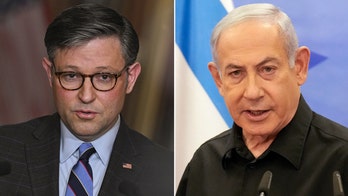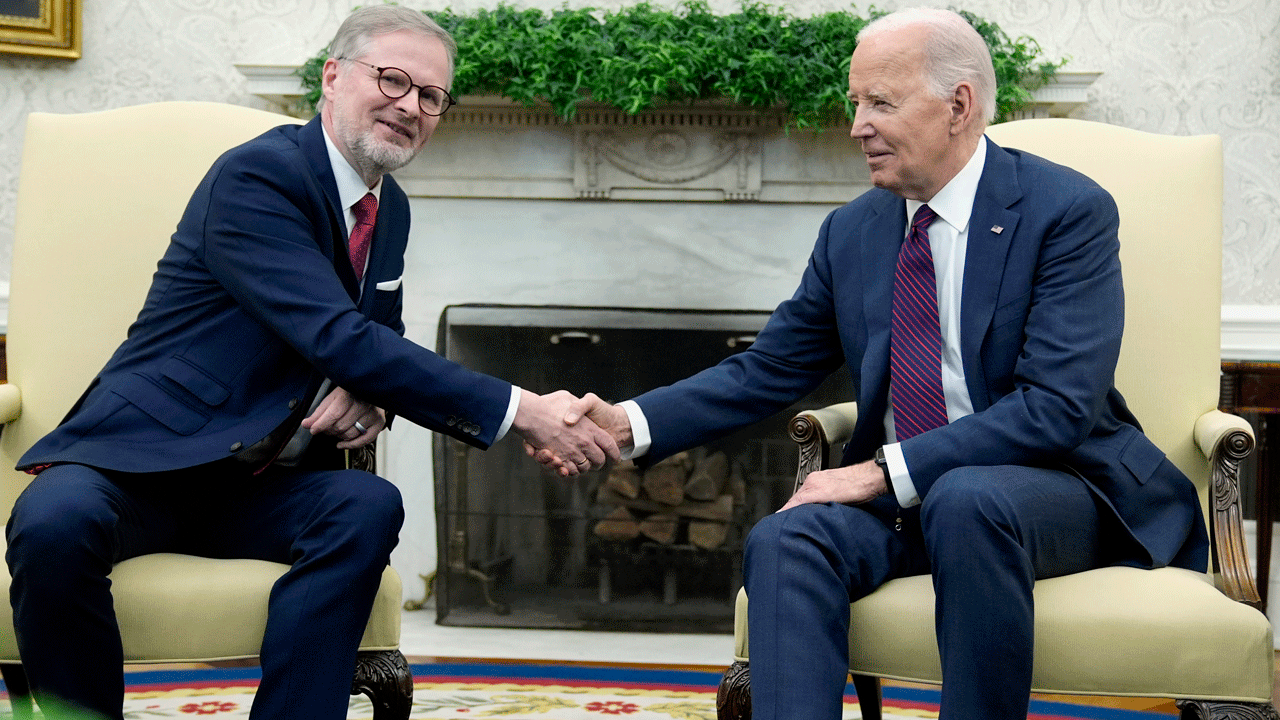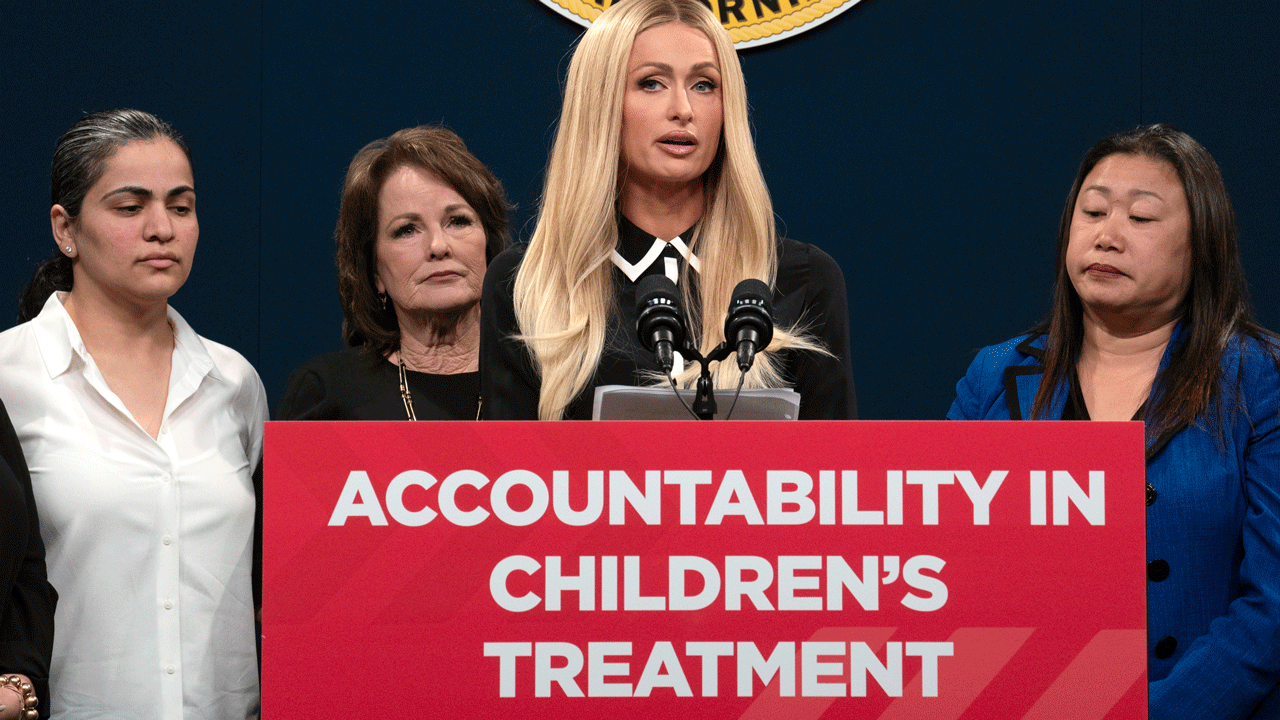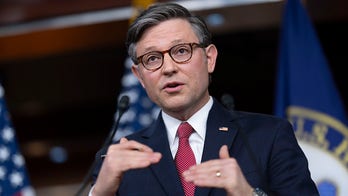Mitch McConnell: For the People Act designed to make 'easier to cheat'
Senate Minority Leader Mitch McConnell slams election reform bill
Senate Minority Leader Mitch McConnell and Majority Leader Chuck Schumer Wednesday launched broadsides against each other in a hearing on S.1, the controversial Democratic-backed elections bill that would make sweeping changes to how Americans elect their leaders.
The hearing also featured clashes between other senators over how fairly the hearing was being run, the validity of concerns about illegal aliens voting and multiple references to the Jan. 6 attack on the Capitol.
"Shame, shame, shame," Schumer, D-N.Y., said while referring to GOP efforts to tighten voting rules on the state level in the wake of the 2020 election. He said those efforts are a key reason why the bill, officially titled the For the People Act, is needed.
McConnell, R-Ky., and Schumer are members of the Senate Rules and Administration Committee, which is holding the hearing. It's rare for Senate leaders to participate in a legislative hearing in the way both are Wednesday.
"Our move to equality, our move to fairness has been inexorable. But it didn't happen on its own, it took mighty movements and decades of fraught" political fights, Schumer said. "I would like to ask my Republican colleagues, why are you so afraid of democracy?"
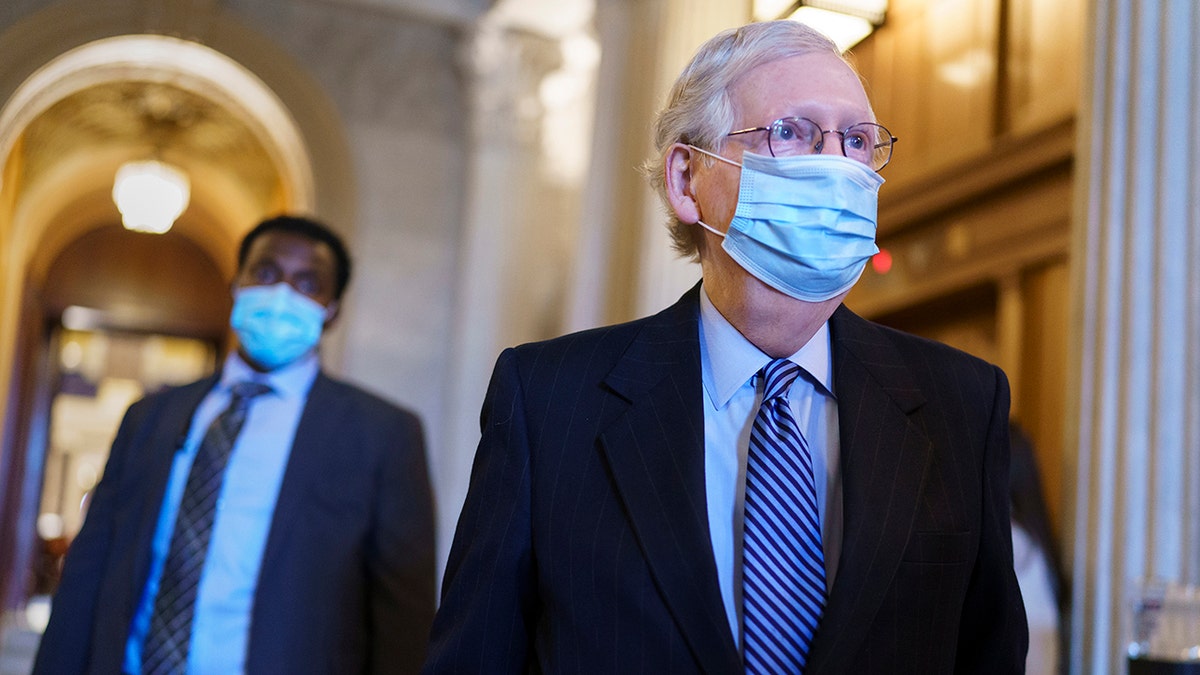
Senate Minority Leader Mitch McConnell, R-Ky., leaves the chamber after criticizing Democrats for wanting to change the filibuster rule, at the Capitol in Washington, Tuesday, March 16, 2021. (AP Photo/J. Scott Applewhite)
SENATE SET FOR CLASH ON HOT-BUTTON BILL DEMS SAY BOOSTS VOTING RIGHTS, GOP DECRIES AS POWER GRAB
He said if Republicans get their way on "these vicious and often racist actions, third-world autocracy like Erdogan's Turkey" is "on its way."
McConnell shot back, saying it is Democrats who should be ashamed over how they've handled the voting bill. He cited a provision in the bill that would change the Federal Election Commission (FEC) from a body with three Republicans and three Democrats to one with two members from each party and a third unaffiliated member appointed by the president.
"Talk about shame. If anybody ought to be feeling any shame around here, it's turning the FEC into a partisan prosecutor, the majority controlled by the president's party, to harass and intimidate the other side," McConnell said. "That's what you ought to be ashamed about."
He also warned the bill is "an invitation to chaos" that state officials would not be able to implement before the 2022 midterms, with mandates on everything from how they can run early voting to the type of adhesive allowed for ballot envelopes.
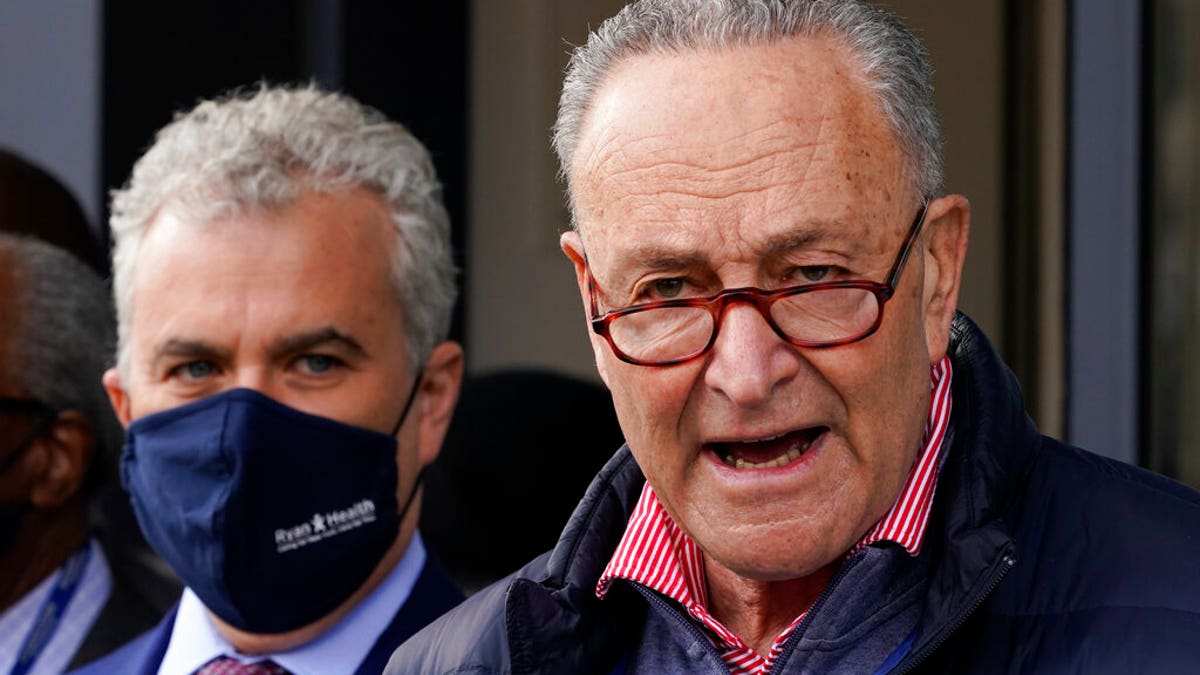
Jeff Zients, White House COVID coordinator, left, joins Senate Majority Leader Chuck Schumer, D-N.Y. as he speaks to reporters during a news conference, Friday, March 19, 2021, in New York. (AP Photo/Mary Altaffer)
"This is clearly an effort by one party to rewrite the rules of our political system, but even more immediately it would create an implementation nightmare ... that would drown state and local officials," McConnell said.
He also said there is money in the bill that would end up going to campaign spending on "attack ads, bumper stickers, buttons and balloons."
MCCONNELL SAYS DEMS TRYING TO USE POWER TO HELP 'WIN ELECTIONS IN PERPETUITY' WITH HR1, DC STATEHOOD
The hearing also featured a clash between committee Chair Sen. Amy Klobuchar, D-Minn., and Ranking Member Sen. Roy Blunt, R-Mo., over "fair play" and speaking time.
At the outset of the hearing, Blunt said that Democrats changed the rules for witnesses at the last second and blindsided them with the text of the bill.
"This committee has a long tradition of respect for the minority party," Blunt said. He said he hoped it will be "restored." Klobuchar responded by noting similar bills had been introduced in Congress in the past and that S.1 "closely tracks" with a House bill introduced in January.
Then later in the hearing, Blunt cut off Brennan Center for Justice President Michael Waldman as he answered a question, to which Klobuchar objected. She gave Waldman extra time after Blunt completed his questioning, to which Blunt objected.
"The five minutes is mine. It is not Mr. Waldman's," he said.
Klobuchar responded by saying she'd given Blunt extra time as he spoke and that it is her "prerogative as chair" to give the witness extra time.
Sen. Roger Wicker, R-Miss., then took time to slam Klobuchar over her handling of the exchange for several moments, though most of his comments were not audible as his microphone was not on.
"Senator Blunt was well within his rights to cut that off, to move on to other matters," he said. "But if the chair in this committee on this important day... is going to run this committee in a way that I've never seen in 13 years then I wil l point out that this is quite irregular."
Klobuchar then committed to being "nothing but more than fair as we go forward" while still reserving the right to extend speaking time if she wants to.
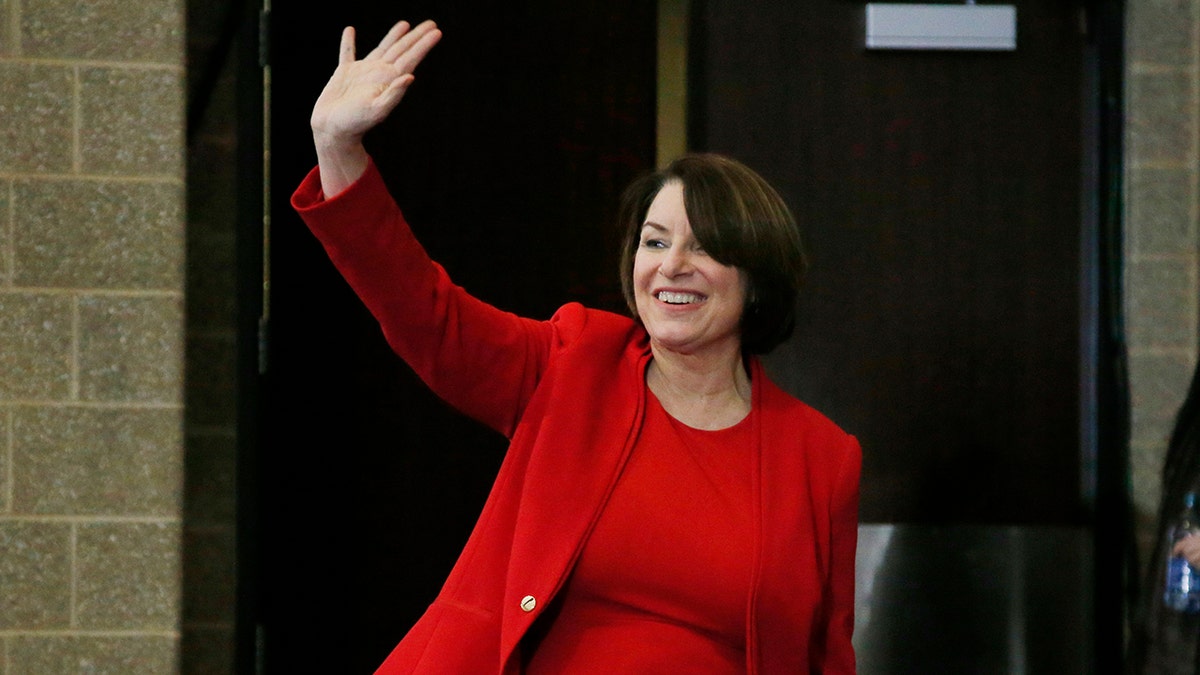
Sen. Amy Klobuchar, D-Minn., waves as she arrives to speak to the Scott County Iowa Democrats Saturday, Jan. 25, 2020, in Bettendorf, Iowa. (AP Photo/Sue Ogrocki)
S.1 and its companion legislation, H.R.1, which passed the House with only Democratic votes, would also ban states from requiring photo ID to vote; raise barriers for states to clear voter rolls; require states to offer drop boxes for 45 days before an election and much more.
A group of 14 other Senate Republicans is participated in a news conference later Wednesday railing against S.1, the equivalent of more than 20% of their caucus.
"That's another kind of metric that tells you how fired up they are," a GOP aide said of the sentiment among GOP senators on S.1.
20 STATE AGS DENOUNCE DEMOCRATS HR1 AS UNCONSTITUTIONAL
Republicans out of Congress have widely panned the bill as well. Ohio Secretary of State Frank LaRose in an interview with Fox News Wednesday slammed the bill as "crisis opportunism" on behalf of Democrats.
"They are using the justification of the 2020 experience -- pandemic and challenges that some states had -- as an excuse to push through on a completely party-line vote, a list of agenda items that they've wanted to do for a long time," LaRose said. He added that as Americans learn more about the bill in the hearing Wednesday they will "start to realize that it is a left-wing activist dream list."
One of the provisions he listed to support that assertion is the change in the makeup of the FEC. LaRose and other Republicans have said this would make the FEC "partisan." LaRose also raised constitutional concerns about the federal government dictating how states run their elections.
LaRose also noted that the bill includes broad statements supporting statehood for Washington, D.C.
"What the heck does that have to do with improving elections?" he said.
Perhaps the biggest issue looming over the current Congress, the Jan. 6 attack on the Capitol, was also invoked multiple times Wednesday. Klobuchar was the first to bring it up as she lambasted Republicans for alleging that S.1 would cause chaos within states if implemented.
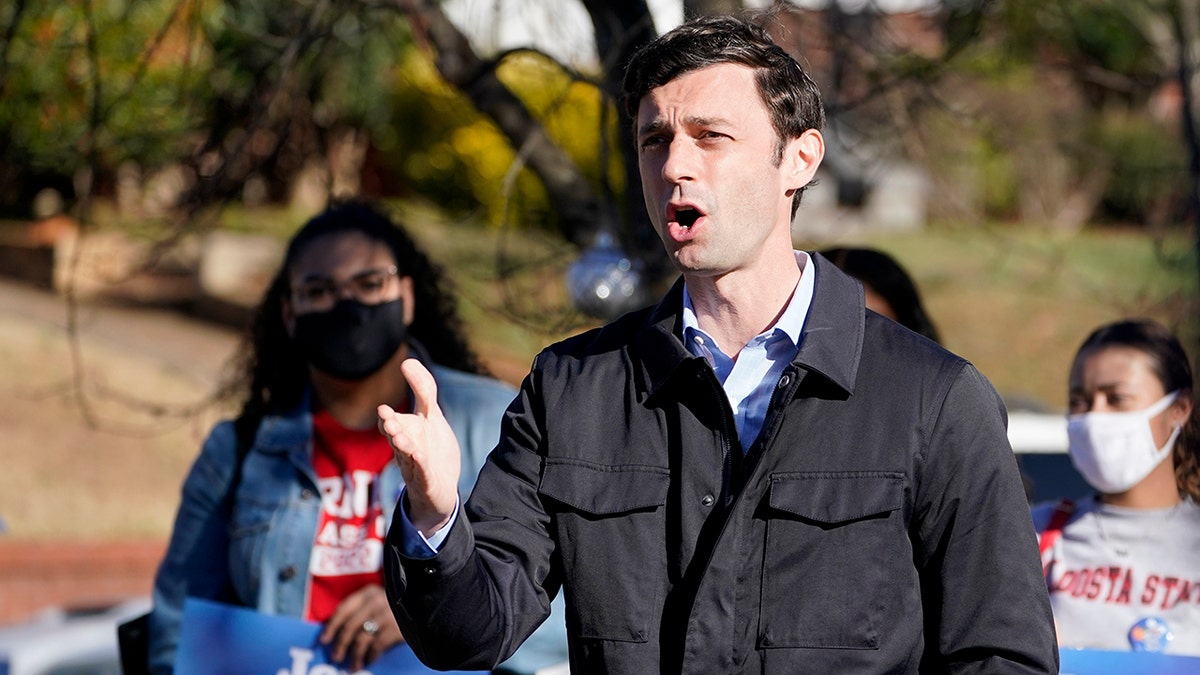
Sen. Jon Ossoff, D-Ga., speaks after voting early in Atlanta on Tuesday, Dec. 22, 2020. For the second time in three years, Jon Ossoff is campaigning in overtime. The question is whether the 33-year-old Democrat can deliver a win in a crucial Jan. 5 runoff with Republican Sen. David Perdue. (AP Photo/John Bazemore)
"Chaos is what we’ve seen in the last years, five-hour or six-hour lines in states like Arizona to vote. Chaos is purging names of longtime voters from a voter list so they can’t go vote in states like Georgia," she said. "And chaos is what we saw happen at the Capitol when people heard for an entire year that our election isn’t sound and they decided to come here and take it under their own hands. That angry mob, that was chaos."
Sen. Jon Ossoff, D-Ga., meanwhile, attacked Indiana Attorney General Todd Rokita for allegedly supporting former President Donald Trump's "deliberate and sustained misinformation campaign... that was so dramatic and so destructive that it culminated in a violent assault on the United States Capitol."
"I find it disturbing that a chief law enforcement officer from one of our great states would indulge in that kind of misinformation and spread those kinds of conspiracies when public confidence in the integrity of our elections is absolutely essential to sustaining our Democracy," Ossoff continued.
Rokita asked to respond to the attack, to which Ossoff replied, "No, you may not."
Klobuchar stepped in to give Rokita a chance to speak.
"We're trying to have a constructive debate you're not adding to it by cutting people off after invoking their name," Rokita said. "I would say you're entitled to your opinion as misinformed as it may be. But I share the opinion of millions of Americans. The other difference between my opinion and yours is mine comes with the ability to file lawsuits."
Sen. Ted Cruz, R-Texas, at the hearing Wednesday raised his voice for most of his comments as he accused Democrats of pushing the "single most dangerous bill this committee has ever" considered.
He said that the bill would promote "widespread fraud and illegal voting" especially by registering all people who get driver's licenses and attend public universities, which many illegal immigrants do. Rokita agreed.
"It would dilute the votes of every citizen who is supposed to be voting," he said.
CLICK HERE TO GET THE FOX NEWS APP
Michigan Secretary of State Jocelyn Benson, however, said under questioning from Sen. Jeff Merkley, D-Ore., that her state's automatic voter registration system is able to keep illegal immigrants from being registered to vote.
"We actually have six checks in place ... to ensure that only valid citizens are being registered," she said. The system has not been a "big burden" on the state, she said, and was "enormously successful."
Merkley said that Cruz's warning was just "hyperbolic speech" that should be discounted.
Klobuchar meanwhile lauded S.1 in her opening statement Wednesday.
"Efforts have been made to suppress the vote. Efforts have been made to introduce bills that would suppress the vote," Klobuchar said of GOP-backed bills on the state level. "A dozen states including Arizona, Georgia and Pennsylvania, have introduced legislation to limit access to vote by mail."
"These are real threats to our democracy and the For The People Act takes them head on in a common sense way," she said.



